Related Research Articles

Alexei David Sayle is an English stand-up comedian, actor, television presenter, author and former recording artist, and was a central figure in the British alternative comedy movement in the 1980s. He was voted the 18th greatest stand-up comic of all time on Channel 4's 100 Greatest Stand-ups in 2007. In an updated 2010 poll he came 72nd.

The Trammps are an American disco and soul band, who were based in Philadelphia and were one of the first disco bands.

Colin James Hay is an Scottish-born Australian/American musician who emigrated to Australia in his youth. He is a singer, songwriter, and actor. He came to prominence as the lead vocalist of the band Men at Work and later as a solo artist. Hay's music has been frequently used by actor and director Zach Braff in his work, which helped a career rebirth in the mid-2000s.

The Swing is Australian rock band INXS's fourth studio album, released in April 1984. It peaked at number one on the Kent Music Report Albums Chart for five non-consecutive weeks from early April to mid-May 1984. The lead single "Original Sin" was recorded in New York City with Nile Rodgers and featured Daryl Hall on backing vocals. Overall, the album featured a slightly harder-edged sound than their previous releases.

INXS is Australian rock band INXS's first album. It was released on Deluxe Records in Australia on 13 October 1980. The band recorded the album in midnight to dawn sessions during 1979 to 1980 after performing, on average, two gigs a day at local pubs around Sydney. All tracks were credited to band members, Garry Gary Beers ; brothers Andrew, Jon and Tim Farriss ; Michael Hutchence ; and Kirk Pengilly. The album was co-produced by the band and Duncan McGuire. It spawned the single, "Just Keep Walking", which became their first Australian Top 40 hit. INXS peaked in the Top 30 of the related Kent Music Report Albums Chart. The album did not appear internationally until 1984.

Ziggy Stardust: The Motion Picture is a live album by English musician David Bowie, released in October 1983 in correspondence with the film of the same name. The music was recorded during the Ziggy Stardust Tour at the Hammersmith Odeon in London on 3 July 1973, although the album was not issued by RCA Records until 1983. Prior to that it had existed in bootleg form, notably His Masters Voice – Bowie and the Spiders From Mars' Last Stand.

Season of Glass is the fifth studio album by Yoko Ono, her first solo recording after the murder of her husband John Lennon. Season of Glass, released in 1981, reached #49 on the Billboard 200 Album Chart, making it Ono's highest-charting solo album to date.
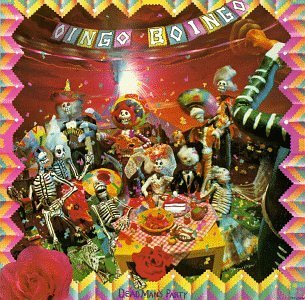
Dead Man's Party is the fifth album by American new wave band Oingo Boingo, released in 1985. The album cover art is an homage to the Mexican holiday Día de Los Muertos.

Loggins and Messina is an American rock-pop duo consisting of Kenny Loggins and Jim Messina, who achieved their success in the early to mid-1970s. Among their well-known songs are "Danny's Song", "House at Pooh Corner", and "Your Mama Don't Dance". After selling more than 16 million records and becoming one of the leading musical duos of the 1970s, Loggins and Messina broke up in 1976. Although Messina would find only limited popularity following the breakup, Loggins went on to further success in the 1980s. In 2005 and again in 2009, Loggins and Messina reformed for tours in the United States.

The Cockroaches were an Australian pub rock band active throughout the 1980s. The band was founded in 1979 by the Field brothers−Paul, John, and Anthony Field −and Tony Henry on drums and Joseph Hallion on saxophone. They were joined in 1981 by Jeff Fatt on keyboards. In 1986 they signed with an independent label, Regular Records, which issued their first three albums, including The Cockroaches, which peaked at No. 9 on the Australian Kent Music Report Albums Chart; it sold 70,000 copies and was certified platinum by their label. The album spawned the single "She's the One", which became the band's biggest hit when it peaked at No. 7 on the Kent Music Report Singles Chart in April 1987. In 1988, The Daily Telegraph described The Cockroaches, who played over 300 gigs a year, as the "Hardest Working Rock'n'Roll Band" in the country.
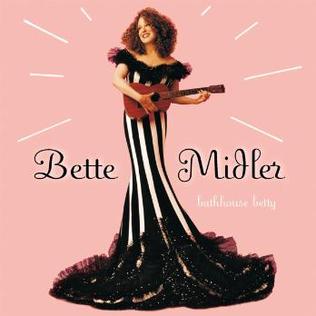
Bathhouse Betty is the ninth studio album by the American singer Bette Midler, released in 1998. Bathhouse Betty was Midler's debut album for Warner Bros. Records, after having parted ways with sister label Atlantic Records in 1995 following the moderate commercial success of her later-platinum certified album Bette of Roses. Bathhouse Betty was certified Gold by the RIAA and spawned the Billboard Dance Club chart topper "I'm Beautiful".
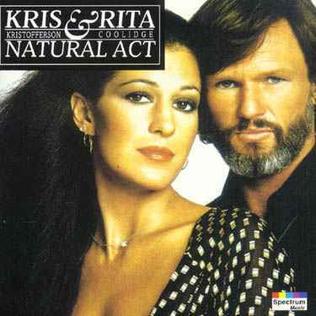
Natural Act is the third and final duet album by Kris Kristofferson and Rita Coolidge, released in 1978 on A&M Records. The couple would divorce the following year. The album was released while Coolidge's career was at a peak; her recent albums Anytime...Anywhere and Love Me Again had seen much commercial success. Natural Act is Kristofferson's only album to chart in the United Kingdom.
"Didn't You Kill My Brother?" is an episode of The Comic Strip Presents..., a British television comedy. "Didn't You Kill My Brother" premiered on Channel 4 on Saturday 19 March 1988 at 10:50 pm. CBS Records released the theme song, also titled "Didn't You Kill My Brother?" as a single in 1985.
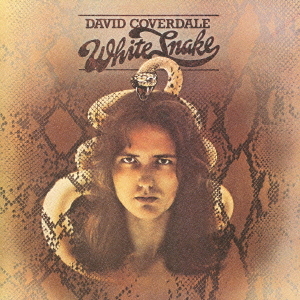
White Snake is the first solo album by David Coverdale, released in February 1977. Coverdale would use the album title as the name of his future band, first known as "David Coverdale's Whitesnake" and soon afterwards shortened to Whitesnake.
"My Baby" is a 1980 single from Australian rock band Cold Chisel, the third released from the album East and the first of the band's singles not to be written by pianist Don Walker. This was the only track credited solely to bass player Phil Small on any of the band's albums apart from "Notion For You" on the 1994 rarities album Teenage Love.

"My Guitar Wants to Kill Your Mama" is a song written by Frank Zappa and originally recorded by The Mothers of Invention in February 1969 at Criteria Studios (Miami), with overdubs recorded sometime between March and May 1969 at TTG Studios and Whitney Studios. This version was included on their 1970 album Weasels Ripped My Flesh, an LP that included various recordings by the band from 1967 to 1969. A second version was released as a single on the Bizarre and Reprise labels as "My Guitar." Despite the more conventional naming, "My Guitar" did not chart.

Uncovered is a solo studio album by Australian singer John Farnham, produced by Little River Band's Graeham Goble, and released on 3 July 1980, which peaked at No. 20 on the Australian Kent Music Report Album Charts. Farnham's first single from the album was a reworking of The Beatles' song "Help!"; it peaked at No. 8 on the Kent Music Report Singles Chart. The second single "Please Don't Ask Me" didn't chart, however it was re-released in 1991 as a live version as part of the Full House album and became a Number #22 on the Aria music chart. in 2000, to coincide with its 20th anniversary, Uncovered the album was re-mastered by Goble and re-released.
Colin Gibson is an English bass player and composer.

"War Baby" is a song by Tom Robinson, released as a single in 1983. It reached No. 6 on the UK singles chart, and was included on Robinson's 1984 album Hope and Glory.
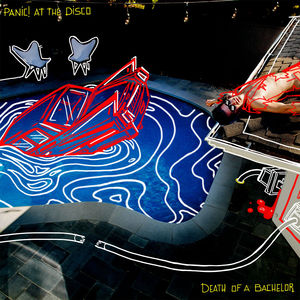
Death of a Bachelor is the fifth studio album by Panic! at the Disco, and their first as a solo project, released January 15, 2016 on Fueled by Ramen and DCD2. It is the follow-up to the band's fourth studio album, Too Weird to Live, Too Rare to Die! (2013), with the entire album written and recorded by vocalist/multi-instrumentalist Brendon Urie, who collaborated with other writers including Jake Sinclair, Morgan Kibby, Lolo, and Sam Hollander. It is the band's first album to not feature drummer Spencer Smith and also follows bassist Dallon Weekes' departure from the official line-up, subsequently becoming a touring member once again.
References
- ↑ Kent, David (1993). Australian Chart Book 1970–1992 (illustrated ed.). St Ives, N.S.W.: Australian Chart Book. p. 265. ISBN 0-646-11917-6.